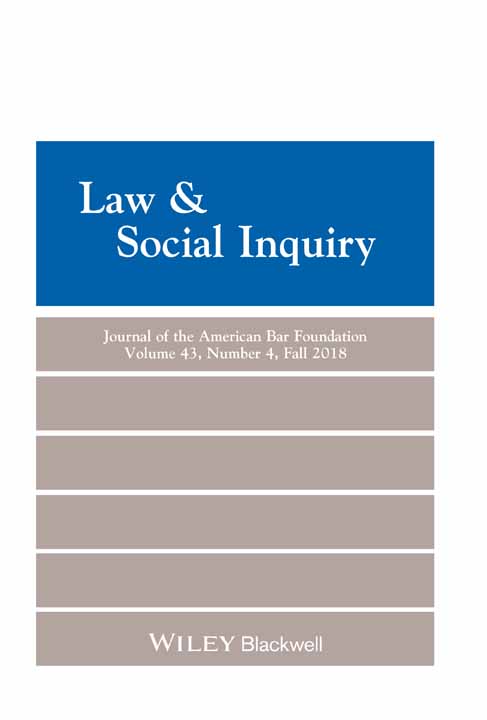Specialization and Prestige in the Legal Profession: The Structure of Deference
This study has been conducted under the sponsorship of the American Bar Foundation, with funding provided by the American Bar Endowment and by the Russell Sage Foundation. The researchers have received valuable advice from more than a score of members of the Chicago bar, as well as from their colleagues at the University of Chicago and Northwestern University, most notably Edward Shils, Morris Janowitz, and Spencer Kimball. Especially helpful in the technical aspects of executing the data analysis were our research assistants, Charles Cappell, Peter Marsden, and Scott Marden. The authors wish to acknowledge, with gratitude, their considerable debts to all of these persons and institutions.
Abstract
The process of specialization is now well advanced within the legal profession, and the specialties have acquired clearly varying levels of prestige among the practicing bar. What are the characteristics of the specialties, or of the lawyers who practice in them, that might account for these variations in prestige? In describing the prestige differences and several of the variables that might be thought to account for them, the authors analyze the results of a survey of a large random sample of Chicago lawyers. Among the findings are a strong relationship between prestige within the legal profession and the type of clients that the specialty serves, a substantial correlation between prestige and the degree of intellectual challenge presented by the subject matter of the specialty, and the perhaps surprising result that prestige is not significantly associated with the income earned by lawyers practicing in the specialty. The authors conclude that legal specialties that regularly confront personal suffering lose social standing as a result, that prestige within the profession is directly proportional to the degree to which the specialty facilitates the conduct of corporate enterprise, and that the varying prestige of the specialties is likely to affect the political and professional power of the lawyers who practice in them and to influence the patterns of recruitment of lawyers into law practice.




